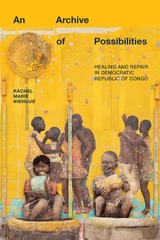6 books about Collective memory in literature
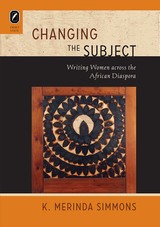
Changing the Subject
Writing Women across the African Diaspora
K. Merinda Simmons
The Ohio State University Press, 2014
In Changing the Subject: Writing Women across the African Diaspora, K. Merinda Simmons argues that, in first-person narratives about women of color, contexts of migration illuminate constructions of gender and labor. These constructions and migrations suggest that the oft-employed notion of “authenticity” is not as useful a classification as many feminist and postcolonial scholars have assumed. Instead of relying on so-called authentic feminist journeys and heroines for her analysis, Simmons calls for a self-reflexive scholarship that takes seriously the scholar’s own role in constructing the subject.
The starting point for this study is the nineteenth-century Caribbean narrative The History of Mary Prince (1831). Simmons puts Prince’s narrative in conversation with three twentieth-century novels: Zora Neale Hurston’s Their Eyes Were Watching God, Gloria Naylor’s Mama Day, and Maryse Condé’s I, Tituba, Black Witch of Salem. She incorporates autobiography theory to shift the critical focus from the object of study—slave histories—to the ways people talk about those histories and to the guiding interests of such discourses. In its reframing of women’s migration narratives, Simmons’s study unsettles theoretical certainties and disturbs the very notion of a cohesive diaspora.
The starting point for this study is the nineteenth-century Caribbean narrative The History of Mary Prince (1831). Simmons puts Prince’s narrative in conversation with three twentieth-century novels: Zora Neale Hurston’s Their Eyes Were Watching God, Gloria Naylor’s Mama Day, and Maryse Condé’s I, Tituba, Black Witch of Salem. She incorporates autobiography theory to shift the critical focus from the object of study—slave histories—to the ways people talk about those histories and to the guiding interests of such discourses. In its reframing of women’s migration narratives, Simmons’s study unsettles theoretical certainties and disturbs the very notion of a cohesive diaspora.
[more]
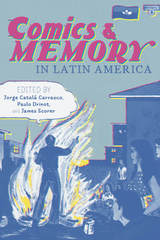
Comics and Memory in Latin America
Jorge Catala Carrasco
University of Pittsburgh Press, 2016
Latin American comics and graphic novels have a unique history of addressing controversial political, cultural, and social issues. This volume presents new perspectives on how comics on and from Latin America both view and express memory formation on major historical events and processes. The contributors, from a variety of disciplines including literary theory, cultural studies, and history, explore topics including national identity construction, narratives of resistance to colonialism and imperialism, the construction of revolutionary traditions, and the legacies of authoritarianism and political violence. The chapters offer a background history of comics and graphic novels in the region, and survey a range of countries and artists such as Joaquín Salvador Lavado (a.k.a Quino), Héctor G. Oesterheld, and Juan Acevedo. They also highlight the unique ability of this art and literary form to succinctly render memory. In sum, this volume offers in-depth analysis of an understudied, yet key literary genre in Latin American memory studies and documents the essential role of comics during the transition from dictatorship to democracy.
[more]
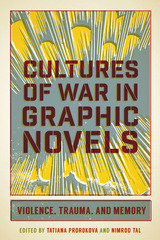
Cultures of War in Graphic Novels
Violence, Trauma, and Memory
Prorokova, Tatiana
Rutgers University Press, 2018
First runner-up for the 2019 Ray and Pat Browne Award for the Best Edited Collection in Popular and American Culture
Cultures of War in Graphic Novels examines the representation of small-scale and often less acknowledged conflicts from around the world and throughout history. The contributors look at an array of graphic novels about conflicts such as the Boxer Rebellion (1899-1901), the Irish struggle for national independence (1916-1998), the Falkland War (1982), the Bosnian War (1992-1995), the Rwandan genocide (1994), the Israel-Lebanon War (2006), and the War on Terror (2001-). The book explores the multi-layered relation between the graphic novel as a popular medium and war as a pivotal recurring experience in human history. The focus on largely overlooked small-scale conflicts contributes not only to advance our understanding of graphic novels about war and the cultural aspects of war as reflected in graphic novels, but also our sense of the early twenty-first century, in which popular media and limited conflicts have become closely interrelated.
Cultures of War in Graphic Novels examines the representation of small-scale and often less acknowledged conflicts from around the world and throughout history. The contributors look at an array of graphic novels about conflicts such as the Boxer Rebellion (1899-1901), the Irish struggle for national independence (1916-1998), the Falkland War (1982), the Bosnian War (1992-1995), the Rwandan genocide (1994), the Israel-Lebanon War (2006), and the War on Terror (2001-). The book explores the multi-layered relation between the graphic novel as a popular medium and war as a pivotal recurring experience in human history. The focus on largely overlooked small-scale conflicts contributes not only to advance our understanding of graphic novels about war and the cultural aspects of war as reflected in graphic novels, but also our sense of the early twenty-first century, in which popular media and limited conflicts have become closely interrelated.
[more]
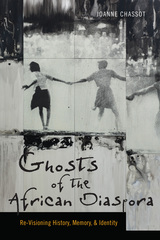
Ghosts of the African Diaspora
Re-Visioning History, Memory, and Identity
Joanne Chassot
Dartmouth College Press, 2018
The first monograph to investigate the poetics and politics of haunting in African diaspora literature, Ghosts of the African Diaspora: Re-Visioning History, Memory, and Identity examines literary works by five contemporary writers—Fred D’Aguiar, Gloria Naylor, Paule Marshall, Michelle Cliff, and Toni Morrison. Joanne Chassot argues that reading these texts through the lens of the ghost does cultural, theoretical, and political work crucial to the writers’ engagement with issues of identity, memory, and history. Drawing on memory and trauma studies, postcolonial studies, and queer theory, this truly interdisciplinary volume makes an important contribution to the fast-growing field of spectrality studies.
[more]

Haints
American Ghosts, Millennial Passions, and Contemporary Gothic Fictions
Arthur Redding
University of Alabama Press, 2011
Examines the work of contemporary American authors who draw on the gothic tradition in their fiction
In Haints: American Ghosts, Millennial Passions, and Contemporary Gothic Fictions, Arthur Redding argues that ghosts serve as lasting witnesses to the legacies of slaves and indigenous peoples whose stories were lost in the remembrance or mistranslation of history.
Authors such as Toni Morrison and Leslie Marmon Silko deploy the ghost as a means of reconciling their own violently repressed heritage with their identity as modern Americans. And just as our ancestors were haunted by ghosts of the past, today their descendants are haunted by ghosts of contemporary crises: urban violence, racial hatred, and even terrorism. In other cases that Redding studies—such as James Baldwin’s The Evidence of Things Not Seen and Toni Cade Bambara’s Those Bones Are Not My Child—gothic writers address similar crises to challenge traditional American claims of innocence and justice.
In Haints: American Ghosts, Millennial Passions, and Contemporary Gothic Fictions, Arthur Redding argues that ghosts serve as lasting witnesses to the legacies of slaves and indigenous peoples whose stories were lost in the remembrance or mistranslation of history.
Authors such as Toni Morrison and Leslie Marmon Silko deploy the ghost as a means of reconciling their own violently repressed heritage with their identity as modern Americans. And just as our ancestors were haunted by ghosts of the past, today their descendants are haunted by ghosts of contemporary crises: urban violence, racial hatred, and even terrorism. In other cases that Redding studies—such as James Baldwin’s The Evidence of Things Not Seen and Toni Cade Bambara’s Those Bones Are Not My Child—gothic writers address similar crises to challenge traditional American claims of innocence and justice.
[more]
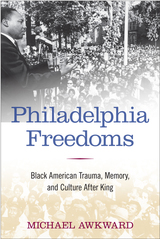
Philadelphia Freedoms
Black American Trauma, Memory, and Culture after King
Michael Awkward
Temple University Press, 2013
Michael Awkward’s Philadelphia Freedoms captures the energetic contestations over the meanings of racial politics and black identity during the post-King era in the City of Brotherly Love. Looking closely at four cultural moments, he shows how racial trauma and his native city’s history have been entwined. He introduces each of these moments with poignant personal memories of the decade in focus and explores representation of African American freedom and oppression from the 1960s to the 1990s.
Philadelphia Freedoms explores NBA players’ psychic pain during a playoff game the day after Martin Luther King, Jr.'s assassination; themes of fatherhood and black masculinity in the soul music produced by Philadelphia International Records; class conflict in Andrea Lee’s novel Sarah Phillips; and the theme of racial healing in Oprah Winfrey’s 1997 film, Beloved.
Awkward closes his examination of racial trauma and black identity with a discussion of candidate Barack Obama’s speech on race at Philadelphia’s Constitution Center, pointing to the conflict between the nation’s ideals and the racial animus that persists even into the second term of America’s first black president.
[more]
READERS
Browse our collection.
PUBLISHERS
See BiblioVault's publisher services.
STUDENT SERVICES
Files for college accessibility offices.
UChicago Accessibility Resources
home | accessibility | search | about | contact us
BiblioVault ® 2001 - 2024
The University of Chicago Press





